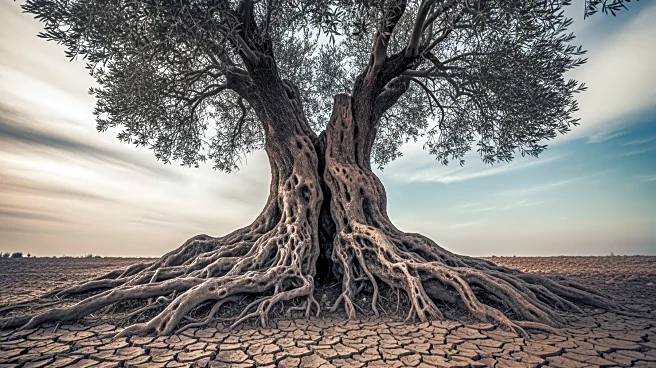Rapid Read • 8 min read
The White House has proposed opening the National Petroleum Reserve-Alaska (NPR-A) to oil and gas drilling, prompting significant backlash. The U.S. Bureau of Land Management (BLM) announced plans to roll back protections on the NPR-A, the largest public land tract in the U.S., which has led to over a quarter of a million public comments opposing the move. Conservation groups and Alaska Native communities have expressed frustration, citing the potential threat to Arctic wildlife and subsistence rights. The proposal is part of a broader initiative to industrialize the Alaskan Arctic, with plans to open 82% of the NPR-A to drilling. This decision has been criticized for disregarding years of work by Alaska Native groups to protect the area.
AD
The proposal to open the NPR-A to drilling has significant implications for environmental conservation and indigenous rights. The reserve is home to critical habitats for polar bears, caribou, and migratory birds, and its industrialization could disrupt these ecosystems. Additionally, the move undermines the subsistence rights of Alaska Native communities who rely on the land for their livelihoods. The decision also raises concerns about the long-term environmental impact, as it could lead to increased greenhouse gas emissions at a time when global efforts are focused on reducing carbon footprints. The public outcry reflects a broader resistance to policies perceived as prioritizing industrial interests over environmental and cultural preservation.
The BLM is currently reviewing the public comments received during the proposal's comment period. The agency has stated it will respond to substantive comments in the final rule. Meanwhile, conservation groups and Alaska Native communities are likely to continue advocating against the proposal, potentially leading to legal challenges. The outcome of this decision could set a precedent for future resource extraction policies in the Arctic, influencing both national and international environmental strategies.
The proposal highlights the ongoing tension between economic development and environmental conservation. It raises ethical questions about the responsibility of governments to protect vulnerable ecosystems and indigenous rights in the face of industrial pressures. The decision could also impact the U.S.'s international standing on climate change commitments, as it contradicts efforts to transition to renewable energy sources.
AD
More Stories You Might Enjoy












